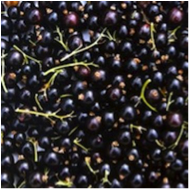Pixley Berries: New varieties and production techniques


Summary
In 2002 Pixley Berries first investigated changing weather conditions and impacts on crop management and harvest and post harvest infrastructure.
Their ongoing research has led them to borrow from abroad; introducing new varieties and adapting mechanisation to reduce risks not only to fruit, but plants and soils, too. Their quick response to climate changes has protected their business from weather impacts, improved crop planning and enhanced their relationships with customers.
Key messages and learning outcomes
Blackcurrants are vulnerable to weather at all stages, having a high winter chill requirement while at the same time being vulnerable throughout flowering, growing and harvest, as with all soft fruit.
Changes in weather have already informed a substantial and fundamental change in the varieties grown, while variety trials look to a changing future.
Planning, investment and management techniques have changing weather at their heart, which in turn offers opportunities to improve quality. This reduces risk, and enhances the reputation of the business, nationally and internationally.
Adaptation outcomes
There has been a dramatic redistribution of varietal mix at Pixley, seeing the rapid replacement of three of just five original varieties at Pixley. These three, currently at 20% of production, were formerly at 90%. Within another three years, they will be gone.
Harvest will have been advanced 3 weeks – not so much due to weather change as to the change of varieties that prosper within the weather.
Enabling factors
Good connections with ‘extension’ workers in other countries, particularly those with lower winter chill than the UK: New Zealand, Australia, South Africa, France and others.
Access to UK knowledge outside the blackcurrant establishment.
Research financed by UK growers.
“Finally, but not least, a brilliant team on the ground at Pixley, that engages with the processes.”
Constraints
The establishment point of view: “Give us the evidence, and then we will investigate”.
Vested interests, both commercial and otherwise.
Links
Contact
Edward Thompson, Pixley Berries
(0) Comments
There is no content